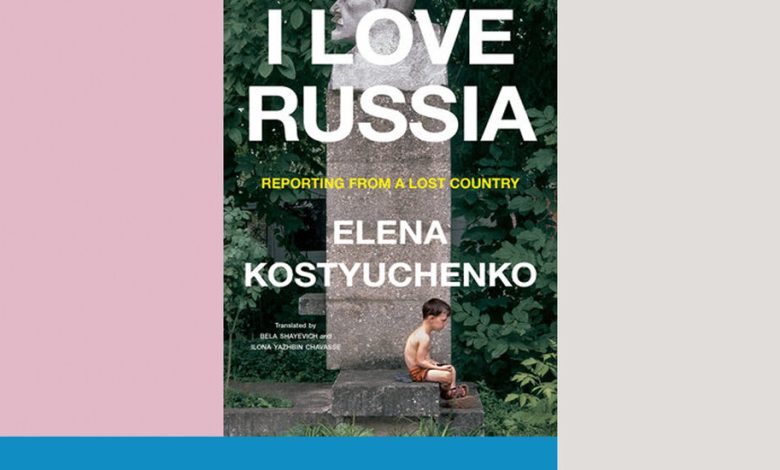A Russian Journalist’s Love Letter to Her People

I LOVE RUSSIA: Reporting From a Lost Country, by Elena Kostyuchenko. Translated by Bela Shayevich and Ilona Yazhbin Chavasse.
“I Love Russia” is a provocative title for a book published in 2023. After President Vladimir Putin stunned the world by invading Ukraine in February 2022, professing a love for Russia has been risky in the West, where the author, the Russian journalist Elena Kostyuchenko, has been forced into exile, and where even the prospect of Russian writers appearing on a literary panel causes controversy. But Kostyuchenko’s deep affection for Russia’s people is evident in her empathetic and nuanced reporting.
There is already a surfeit of books about Putin’s war and how it has affected Russia’s place in global politics, but few have tried to examine the life of ordinary people in the world’s biggest country (by physical size) the way this one does. A kaleidoscopic collection of Kostyuchenko’s journalism since 2008 for the independent newspaper Novaya Gazeta — whose editor in chief won a Nobel Peace Prize in 2021 — “I Love Russia” traces the recent evolution of Russian society, highlighting its persistent inequality and injustice, and suggesting why so many Russians stay silent as their leader prosecutes a ruinous war.
In one jaw-dropping section, Kostyuchenko reports on two weeks in 2021 that she spent as a “guest” in an “internat,” a state-run facility for people with psychiatric and neurological illnesses. Many of the people housed there, she concluded, had mental capacities far beyond what were listed in their medical documents, with some diagnoses “clearly wrong,” but the patients would almost certainly remain hospitalized for life, in the care of an indifferent system.
“When human connection is lost, all that is left is the state,” Kostyuchenko writes. “My state is the internat. Not the Sputnik V vaccine, not the Olympics, not space shuttles. The real face of my state is right here, I can see it.”
Elsewhere, Kostyuchenko recalls how in the 1990s the value of her mother’s life savings declined, practically overnight, to the point where she had only enough to buy a refrigerator, while the money Kostyuchenko’s grandmother saved up for her was worth even less: “two pairs of socks, two pairs of underwear.” As a child during that violent decade, in the wake of the Soviet Union’s collapse, she witnessed a shooting in her neighborhood.
No wonder, she suggests, that many Russians embraced Putin’s strongman pledge. One of Kostyuchenko’s earliest memories is of the television — gray and static — in her childhood apartment, and eventually it becomes clear that powerful state propaganda persuaded even her highly educated mother that the Kremlin was right to annex Crimea in 2014, and unleash its invasion of Ukraine eight years later.
Most of Kostyuchenko’s reporting features people and places rarely visible in Moscow, where she lived until the war began: villages less than 150 miles from the capital but lacking in basic infrastructure; prostitutes catering to an alcoholic clientele; Indigenous communities in Russia’s far north that have largely lost their nomadic herding lifestyles and native languages as a result of Soviet settlement policies.
Her book, translated by Bela Shayevich and Ilona Yazhbin Chavasse, is sometimes hard to follow, in part because it jumps back and forth in time. But her style of brave, intimate reporting is likely to be a rarity in Russia for years to come. Six of her colleagues at Novaya Gazeta have been murdered, and in April 2022, soon after the Russian Parliament passed strict censorship laws, making it illegal to refer to the invasion of Ukraine as a “war,” and creating strict penalties for “discrediting” the Russian military, the paper’s editor told her she was in danger and should not return home from Ukraine, where she was working at the time.
Kostyuchenko moved to Berlin, and in September she published an essay in The Guardian detailing a debilitating illness she suffered after a trip to Munich and which European doctors said was likely caused by poisoning — a favored tactic of Russian authorities to silence dissidents. In subsequent editions of her book, Kostyuchenko may need to include an afterword on her own case.
I LOVE RUSSIA: Reporting From a Lost Country | By Elena Kostyuchenko | Translated by Bela Shayevich and Ilona Yazhbin Chavasse | 363 pp. | Penguin Press | $30



